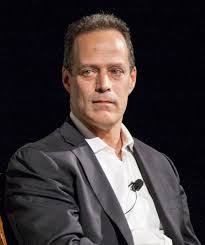Sebastian Junger [1962-0] American    
Rank: 101
Author, Journalist
Sebastian Junger is an American journalist, author and filmmaker most famous for the best-selling book The Perfect Storm: A True Story of Men Against the Sea, his award-winning chronicle of the war in Afghanistan in the documentary films Restrepo, Korengal, and his book War. War, Car, Death, Fear, Medical, Movies, Power, Society, Veterans Day |  |